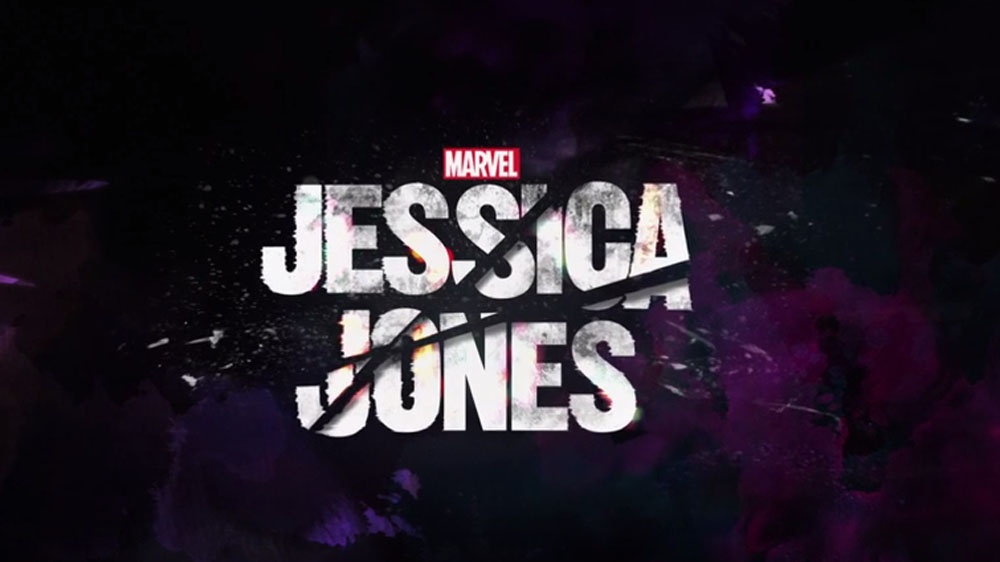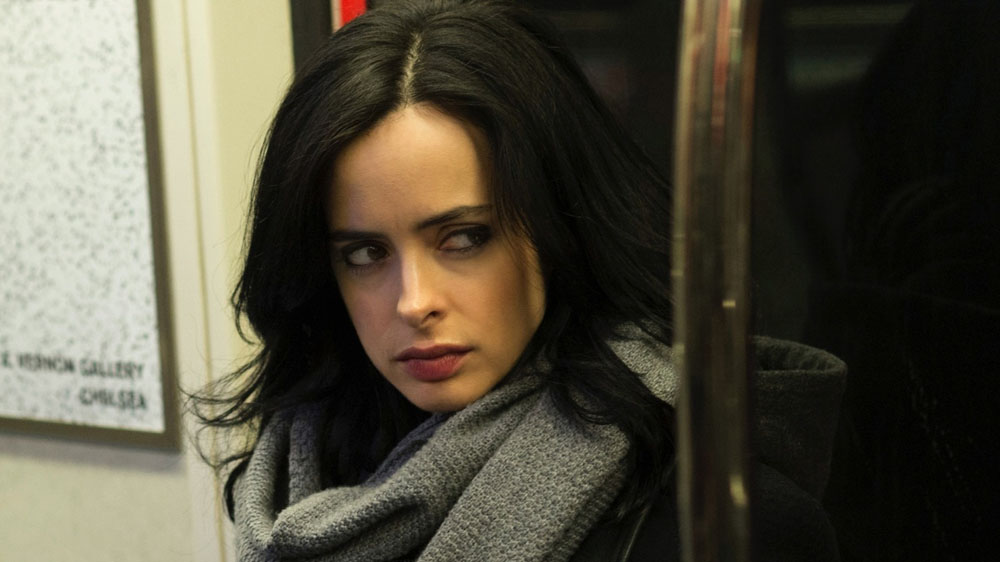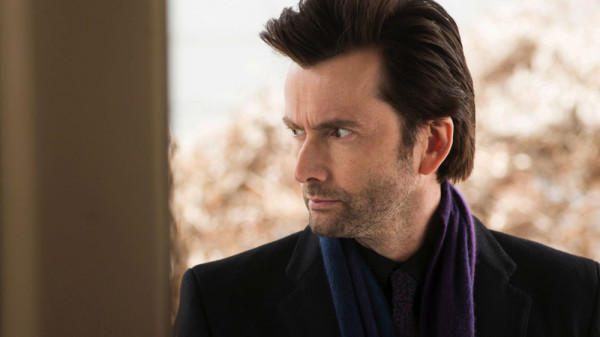Jessica Jones mad a promising, dynamic start with ‘AKA Ladies Night’, a premiere bursting with genuine potential for the subsequent twelve episodes. Do the next three episodes deliver?
There’s a few, to-be-expected variations in quality, but the three episodes do a solid job of refuting the possibility that Jessica Jones could be a one-hit wonder.
It’s the third episode, ‘AKA It’s Called Whiskey’, that’s the best of the bunch, partially because it strikes a terrific balance between all the disparate elements of the show while providing meaningful development on all fronts.
Jessica and Luke Cage’s relationship gets a heavy spotlight here, and their relationship proves to be a refreshingly different take on a superhero romance. For one, they’re both superhumans, allowing the two to feel entirely comfortable with each other with zero of the secret identity angst that so frequently bogs down superhero shows.
Most of all though, it’s a romance befitting of Jessica Jones’ mature, raw tone – this is a relationship that feels tangible and adult, riddled with flaws and lies. A star-crossed, typical romance just wouldn’t feel right for the Jessica this series presents, so her relationship with Luke Cage (who continues to be charismatically played by Mike Colter, who has presence and gravitas in spades) strikes a nice middle ground.

Overall, the three episodes don’t show a great deal more of Kilgrave, but his brief presences are always a chilling highlight. Tennant has a charming magnetism that effortlessly underlines his power – he’s utterly believable someone who could tempt people into doing anything, but there’s always a sinister undercurrent of psychosis underneath the thick façade.
These three episodes make it abundantly clear that Jessica Jones is taking a very different path to Daredevil, which sped out of the blocks like a rocket but slowed down considerably by the final leg.
Episodes 2-4 are slightly more leisurely in progressing the Kilgrave plot, meaning that Jessica Jones has abundant time to sketch in Jessica’s relationship with foster sister Trish and focus on other world-building stories like a case where Jessica confronts a woman who hates ‘gifted’ people.

The result is that while these episodes might not have the wild pace and drive Daredevil had, the show is leaving itself a far more even keel from which to build upon – Jessica Jones is in it for the long haul, quite clearly pacing itself in order to save plot for the back half of the season. In the short term, it’s not always the most gratifying strategy, but this does feel like a better structured and more thought-through season of TV so far than Daredevil’s first season.
Episodes 2-4 of Jessica Jones are all solid, enjoyable combinations of exploration of twisted, dark themes, building of relationships and an intriguing build-up to Jessica and Kilgrave’s first confrontation.
None are exceptional, but there’s a sense that Jessica Jones has the potential to produce something truly special.
![]()
All 13 episodes are available to watch on Netflix now.
> Follow Louis Rabinowitz on Twitter.
What do you think of Marvel’s Jessica Jones so far? Let us know below…

